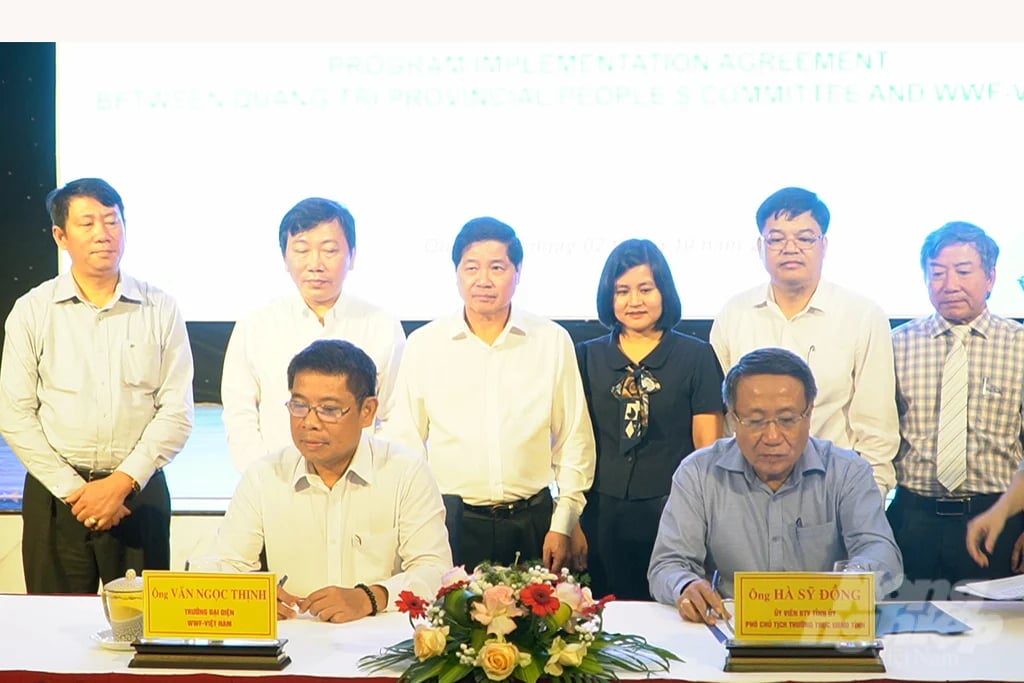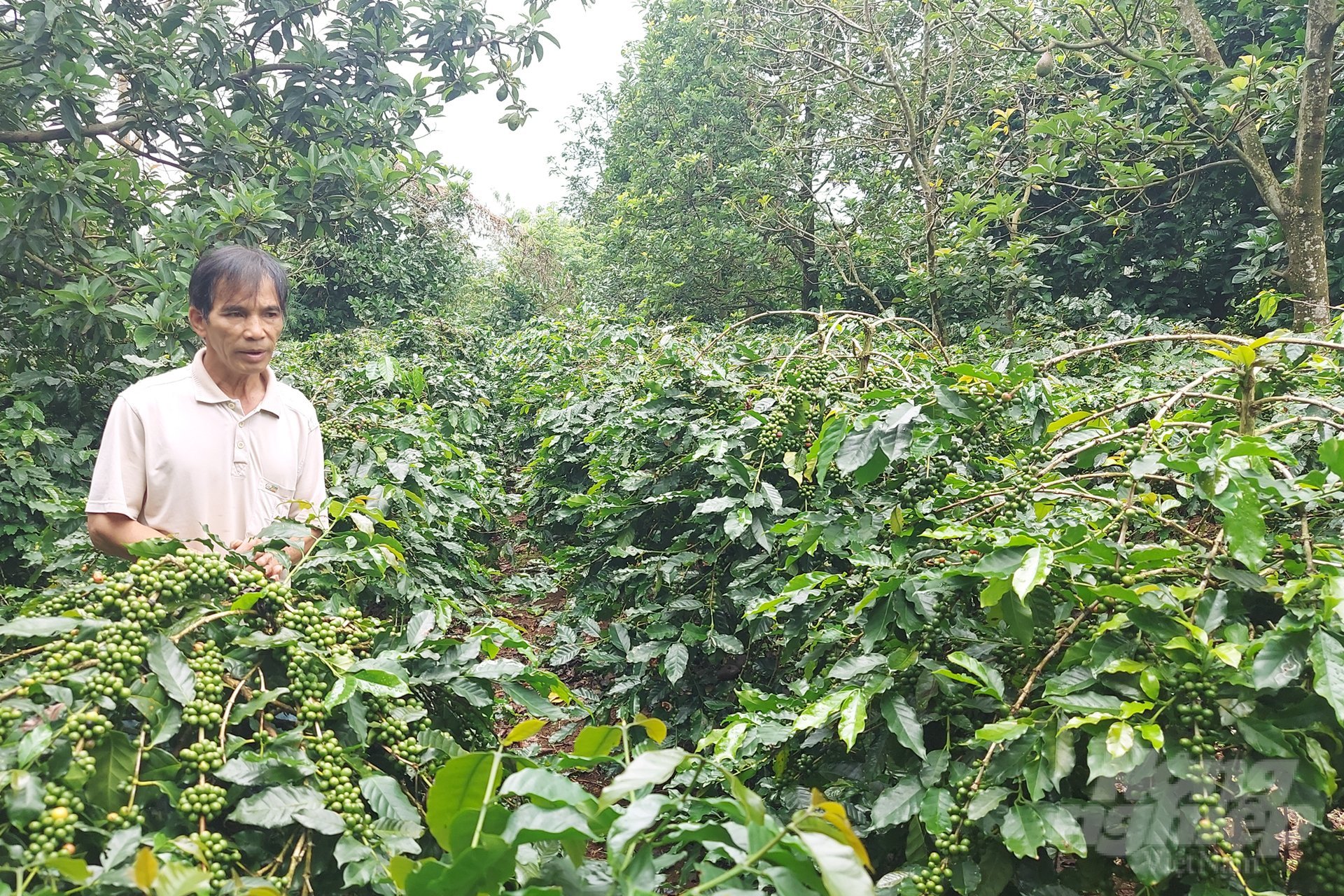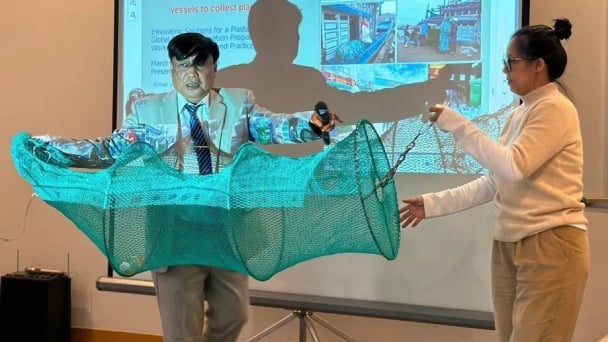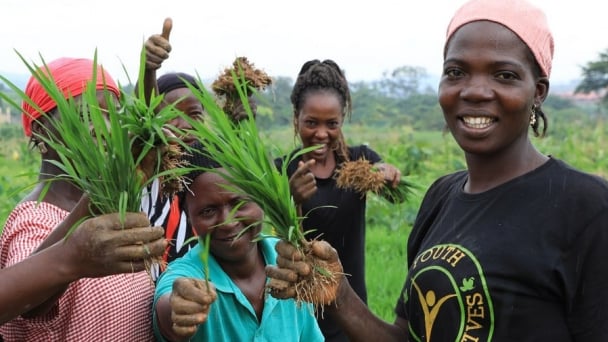May 16, 2025 | 00:47 GMT +7
May 16, 2025 | 00:47 GMT +7
Hotline: 0913.378.918
May 16, 2025 | 00:47 GMT +7
Hotline: 0913.378.918
On the morning of October 2, in Dong Ha City, Quang Tri province, the International Organization for Conservation of Nature in Vietnam (WWF) and its partners jointly launched a Project on ecological coffee production and natural forest improvement. The project aims to help farmers comprehensively transform their coffee production model towards ecological sustainability in parallel with better protection and development of natural forest areas in Huong Hoa district.

WWF and Quang Tri province have just signed a cooperation agreement towards the goal of biodiversity conservation and sustainable development in the period 2023-2028. Photo: Vo Dung.
The project aims to protect 18 thousand ha of natural forest in the biological corridor connecting the two Nature Reserves of Bac Huong Hoa and Dakrong; build raw coffee areas with organic certification and adapt to climate change.
The project is expected to help increase an average of 40% income for about 2 thousand small coffee farmers, mainly Bru-Van Kieu ethnic people; act as a bridge and promote coordination between the State, businesses, investors and farmers to form a sustainable coffee value chain, gradually eliminating small and fragmented production.
During implementation, the project will work with farmers to build an agroforestry coffee model, appropriately intercropping coffee trees, fruit trees and native forestry trees. This model is considered sustainable and capable of adapting to current climate change.
Mr. Nguyen Nhat An, Project Director, WWF-Vietnam shared: “When implemented successfully, the project will not only help increase the adaptation to climate change of degraded natural forests in the region but also contribute to implementing The Vietnamese Government's One Billion Trees Program to creates a green belt to protect the Central Truong Son landscape from the impacts of economic development and climate change".

The project will build a raw coffee area with organic certification and adapt to climate change. Photo: Vo Dung.
At this ceremony, WWF and Quang Tri province signed a cooperation agreement towards the goal of biodiversity conservation and sustainable development in the period 2023-2028.
The agreement will provide a cooperative framework as a basis for implementing activities under programs and projects that WWF implements with partners in Quang Tri province.
Speaking at the signing ceremony, Mr Ha Sy Dong, Vice Chairman of Quang Tri Provincial People's Committee, believed that the signing of the agreement would establish a new milestone of cooperation, creating closer coordination and cooperation on a broader scale between the People's Committee of Quang Tri province and WWF-Vietnam. The common goal is to accompany the field of environmental protection, biodiversity conservation, sustainable use of natural resources, adapting and minimising the impact of climate change, effectively managing water resources, and improving sustainable livelihoods. This also includes contributing to realizing Vietnam's commitment to strive to achieve net zero emissions by 2050.
“We commit to always accompany WWF-Vietnam, and at the same time, assign tasks to Departments and localities to continue to coordinate closely with WWF-Vietnam to effectively deploy the contents of the cooperation agreement between the Provincial People's Committee and WWF-Vietnam", Mr Dong said.
Around the world, consumer demand for organic, sustainably produced coffee, which contributes to reducing greenhouse gas emissions, is increasing. Quang Tri currently has nearly 4 thousand ha of coffee land, most of which is cultivated in monoculture, with productivity decreasing, significantly affecting people's income. Over-fertilization with chemical fertilizers and inappropriate use of herbicides and pesticides cause the soil environment to be degraded. Developing coffee following a landscape and forest garden ecological approach is one of the optimal methods to improve soil, improve productivity, and meet the above standards of customers.
A training workshop to strengthen journalistic capacity to exploit the topic of illegal wildlife trade was held at Cuc Phuong National Park, Ninh Binh for 2 days, September 28 - 29.
The training program is organized by the Forestry Project Management Board, Vietnam Agriculture News, and WWF with sponsorship from USAID.
In particular, the workshop had the participation of leading Vietnamese experts on conservation and investigative journalism and media experts and over 30 journalists and reporters from many media agencies, central and local.
The training workshop aims to contribute to improving journalism and communication capacity in investigating, analyzing data, and selecting topics related to combating illegal wildlife trafficking, and inspire reporters and journalists to participate in combating illegal wildlife trafficking.
Translated by Hoang Duy

(VAN) Data from 10,000 farming households will help professionalize production organization and support the implementation of the One Million Hectares Program for High-Quality, Low-Emission Rice Cultivation.

(VAN) FAO Director-General QU Dongyu marks International Day of Plant Health at NENA conference.

(VAN) Deputy Minister of Agriculture and Environment Hoang Trung affirmed that floriculture and ornamental plants are a growing industry that receives significant global attention.

(VAN) The three staple crops dominating modern diets – corn, rice and wheat – are familiar to Americans. However, fourth place is held by a dark horse: cassava.
/2025/05/10/4037-3-223011_495.jpg)
(VAN) Remote sensing technology is becoming an indispensable tool in monitoring resources, developing modern agriculture, and protecting the environment in Vietnam.

(VAN) The trash bag used on fishing vessels can withstand rough sea conditions, including level 8 to level 10 winds and waves. Notably, it can be hung anywhere on the boat.

(VAN) African leaders launched the Kampala Declaration on Building Resilient and Sustainable Agrifood Systems in Africa, marking a bold step toward transforming the continent's agriculture.